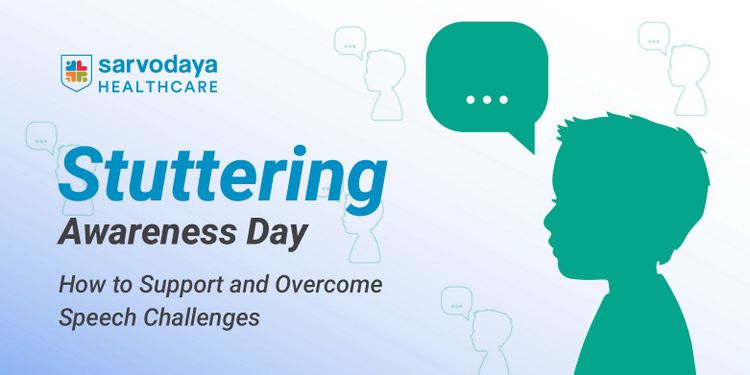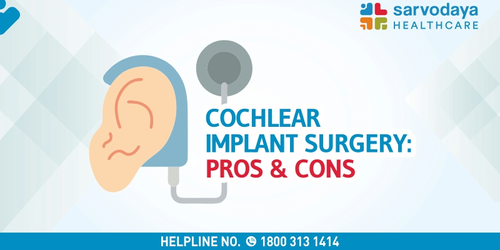Stuttering is a common speech disorder that affects millions of people worldwide, often starting in early childhood. It can be physically and emotionally exhausting for those who experience it. Despite its prevalence, many people who stutter face difficulties in their social, academic, and professional lives due to misconceptions and a lack of support.
In this blog, we explore what stuttering is, its causes and types, and its impact on individuals.
Understanding Stuttering
Stuttering is a speech disorder characterised by disruptions to the normal flow of speech. These disruptions, known as disfluencies, can manifest as repeated sounds, syllables, or words, as well as prolonged sounds or involuntary pauses. These interruptions can make communication difficult, leading to frustration and embarrassment for the individual.
While many people experience occasional speech disfluencies, stuttering is different. It typically persists over time and may be accompanied by physical symptoms such as facial tics, blinking, or other involuntary body movements.
Causes of Stuttering
The causes of stuttering are not fully understood, but several contributing factors can increase the likelihood of someone developing this speech disorder.
These causes can include:
- Genetic Factors: Research suggests that genetic mutations can impact speech fluency.
- Neurological Causes: Studies have shown that there may be differences in the way the brain processes speech in individuals who stutter.
- Environmental Factors: Children who are under pressure to speak quickly or are exposed to inconsistent speech patterns may be more likely to develop the condition.
- Developmental Factors: In many cases, stuttering begins in childhood as part of normal speech development.
Types of Stuttering
Three main types of stuttering can affect individuals, each with distinct characteristics.
The three types of stuttering are:
- Developmental Stuttering: This is the most common type of stuttering, typically occurring in children between the ages of 2 and 5 years old.
- Neurogenic Stuttering: This type of stuttering is caused by neurological damage or brain changes.
- Psychogenic Stuttering: This type of stuttering is less common and is associated with psychological factors such as anxiety, trauma, or emotional distress.
Read More- Sialendoscopy Procedure: Benefits, Risks, And Recovery
How Stuttering Affects Individuals
Living with stuttering can be emotionally and mentally taxing. People who stutter often experience feelings of frustration, embarrassment, and low self-esteem due to their struggles with communication.
The impact of stuttering extends beyond just speech difficulties and can affect various aspects of life:
- Social Challenges: People who stutter may avoid social interactions due to fear of being judged or mocked. This can lead to isolation and a lack of social engagement, which can further exacerbate emotional distress.
- Academic Performance: In educational settings, children who stutter may struggle in class discussions or answering questions, which can negatively impact their self-confidence and academic performance.
- Career Limitations: As adults, individuals with stuttering may avoid career opportunities that require public speaking, thereby missing out on professional growth opportunities.
- Mental Health Impact: The constant battle with stuttering can lead to anxiety, depression, and other mental health challenges. Individuals may feel inadequate or less competent, which can reduce their overall quality of life.
Seeking professional help from experts trained in speech therapy India can significantly improve the individual’s emotional and mental well-being.
Treatment Options for Stuttering
There are several treatment options available for overcoming stuttering, depending on the severity of the condition and the individual’s specific needs.
Here are some key treatment methods:
Speech Therapy Techniques
- Fluency Shaping: This technique focuses on helping individuals speak more fluently by practising slow and controlled speech patterns. The goal is to increase the speed of speech while maintaining fluency gradually.
- Stuttering Modification: This method aims to reduce the fear and tension associated with stuttering. It helps individuals to modify their speech by learning techniques to manage blocks or repetitions in a relaxed manner.
- Cognitive-Behavioural Therapy (CBT): CBT can be helpful for those whose stuttering is linked to anxiety or negative thoughts about speaking. It helps individuals manage their emotional responses and develop healthier attitudes towards speaking.
- Parent Training: For children, speech therapists often work with parents to teach strategies that support the child’s speech development and encourage fluent speech in a positive, nurturing environment.
Support Groups and Peer Interaction
Participating in support groups where individuals with stuttering can share their experiences and coping strategies can be very beneficial. It provides a sense of community and helps reduce the isolation that often accompanies the condition.
Technological Interventions
Devices such as delayed auditory feedback (DAF) and frequency-shifted auditory feedback (FAF) can help individuals in overcoming stuttering by altering the sound of their voice in real time. These devices can encourage smoother speech by providing auditory feedback that promotes more fluent speech patterns.
Importance of Early Intervention
Early intervention can prevent stuttering from becoming a long-term issue and can ensure the child receives the support they need to speak confidently. If a child shows signs of stuttering, seeking help from a paediatric neurologist in Delhi NCR can make a significant difference in their development.
Some of the benefits of early intervention include:
- Better Speech Development: Children who receive therapy early can develop more fluent speech patterns, which can improve their communication skills and boost their self-esteem.
- Reduced Emotional Impact: Early treatment can prevent children from developing the anxiety and negative emotions that often accompany stuttering in later years.
- Improved Social Skills: By providing stuttering support early, children can develop better social skills and feel more comfortable interacting with peers, which promotes healthy social development.
Conclusion
In conclusion, stuttering is a complex speech disorder that impacts various aspects of life, including social interactions and professional opportunities. Early intervention, combined with a supportive environment, can help individuals with stuttering support and overcome the emotional challenges it brings.
If you or someone you know is experiencing stuttering, it is essential to seek professional help. Sarvodaya Hospital, Faridabad, offers expert consultation and treatment options for overcoming stuttering. Whether you need a comprehensive evaluation or a preventive consultation, their team of specialists can help you take the first step toward recovery and improved communication.
Book an appointment now with the professionals at Sarvodaya to begin your journey towards effective management and treatment of stuttering.































